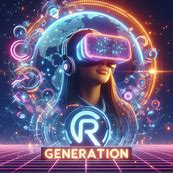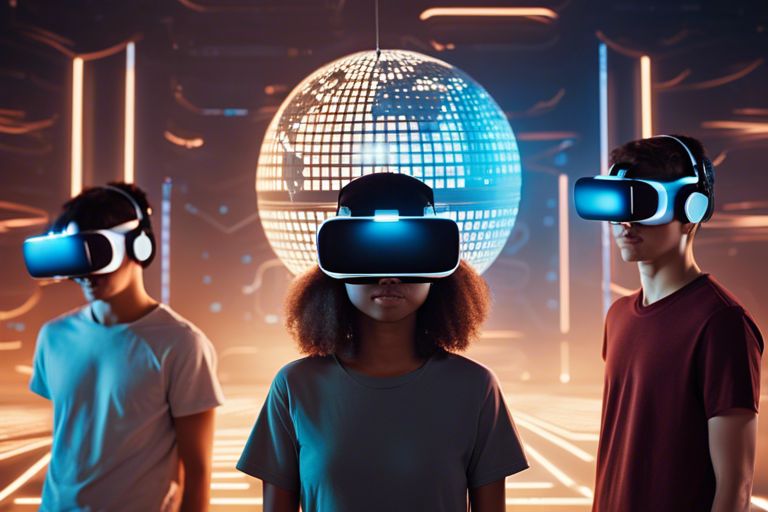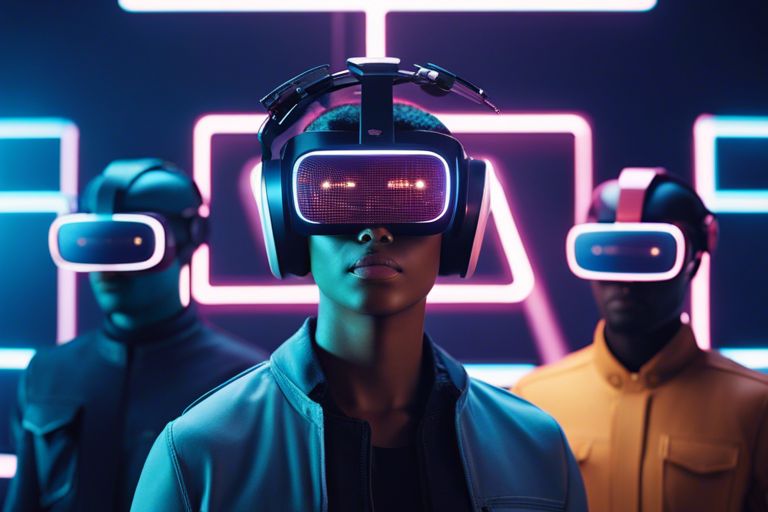Over the past decade, Virtual Reality (VR) technology has rapidly advanced, leading to the rise of Generation VR – individuals who have grown up with immersive digital experiences as a norm. This blog post aims to explore the profound impact this tech-savvy generation will have on society in various aspects. From transforming how we work and socialize to revolutionizing education and entertainment, understanding the influence of Generation VR is crucial in shaping the future of our world.

Generation VR: Who Are They?
You, the Generation VR, are individuals who have grown up in a world where virtual reality (VR) technology is not just a concept but a part of everyday life. This generation is defined by their immersion in digital experiences, leading to a unique set of characteristics that distinguish them from previous generations.
Demographics and Characteristics
Characteristics of Generation VR include being tech-savvy, adaptable, and open to new experiences. They are comfortable with integrating technology into all aspects of their lives, from entertainment to education. This generation values creativity, innovation, and collaboration, often leveraging VR technology to connect with others and explore new virtual worlds.
With a strong emphasis on digital literacy, Generation VR tends to be highly skilled in navigating virtual environments and understanding complex technologies. They are often early adopters of new digital trends and are quick to embrace cutting-edge advancements in VR technology.
Differences from Previous Generations
For Generation VR, the world is not limited by physical boundaries or traditional constraints. They have the ability to transcend geographical limitations and explore far-off places without leaving their homes. This generation sees the world in a different light, where virtual experiences can be just as real and meaningful as physical ones.
Technological Savvy and Adoption
If Generation VR is to shape the future, understanding their technological savvy and adoption of emerging technologies is crucial. This generation is characterized by their innate ability to adapt and excel in a rapidly evolving digital landscape. They are the early adopters of cutting-edge technologies, often embracing them before they become mainstream.
Virtual Reality as a Way of Life
One of the defining traits of Generation VR is their seamless integration of virtual reality into their daily lives. For them, VR is not just a form of entertainment but a way of experiencing the world around them. From immersive virtual travel experiences to socializing in virtual spaces, Generation VR has redefined what it means to interact with technology.
For Generation VR, virtual reality is not just a tool but a lifestyle. Their comfort and fluency in navigating virtual environments have blurred the lines between the physical and digital worlds, opening up endless possibilities for creativity, communication, and collaboration.
Impact on Communication and Interpersonal Relationships
For Generation VR, the impact on communication and interpersonal relationships is profound. Virtual reality has revolutionized the way they connect with others, enabling them to interact in virtual spaces as if they were physically present. This has led to a shift in how relationships are formed and maintained, with virtual interactions becoming just as meaningful as face-to-face encounters.
For instance, the ability to engage in virtual meetings, attend live events, and collaborate on projects in a shared virtual space has transformed the way Generation VR communicates and collaborates. This has the potential to bridge geographical barriers and bring people together in ways that were not possible before, but it also raises concerns about the impact of prolonged immersion in virtual environments on real-world relationships.
Generation VR’s Influence on Economy and Industry
Changes in Consumer Behavior
To understand the impact of Generation VR on the economy and industry, we must first look at the changes in consumer behavior brought about by this tech-savvy generation. Any business that aims to thrive in this new era must adapt to the preferences of these digital natives. Generation VR values immersive experiences and personalization, seeking products and services that cater to their individual preferences and provide unique and engaging interactions. Businesses that can tap into these preferences will have a competitive edge in attracting and retaining customers.
This shift in consumer behavior is reshaping traditional business models, pushing companies to embrace innovative technologies to enhance customer experiences. From virtual showrooms to personalized shopping experiences, any industry that fails to incorporate VR into their strategies risks losing relevance in the eyes of Generation VR.
New Opportunities in the Job Market
Influence by Generation VR is not limited to consumer behavior; it is also transforming the job market by creating new opportunities for individuals skilled in virtual reality technologies. As businesses increasingly adopt VR applications for marketing, training, and product development, the demand for VR developers, designers, and content creators is on the rise.
As a result, we are witnessing a surge in job openings for positions such as VR experience designers, AR developers, and immersive content creators. This presents a unique opportunity for professionals to capitalize on the growing demand for VR expertise and carve out a niche in this evolving industry.
Social Implications and Ethical Considerations
Altering Social Interactions and Norms
Social interactions are being altered by the immersion that comes with virtual reality (VR). The ability to communicate and socialize in virtual environments opens up new possibilities for connection but also raises concerns about the impact on traditional face-to-face interactions. Generation VR is growing up with a blend of physical and digital interactions, leading to shifts in social norms and expectations.
Virtual reality can provide a platform for individuals to experiment with their identities and explore different social dynamics. This freedom can lead to a re-evaluation of societal norms and values. However, it also brings challenges such as the blurring of boundaries between reality and virtual worlds, leading to potential confusion and ethical dilemmas.
Privacy, Data Security, and Ethical Challenges
Ethical considerations surrounding privacy, data security, and virtual reality are crucial as Generation VR embraces this technology. With VR collecting vast amounts of personal data, there are concerns about how this information is stored, used, and protected. The potential for data breaches and unauthorized access raises significant ethical questions about the boundaries of privacy in virtual spaces.
With the rapid advancements in VR technology, it is necessary to address these privacy and ethical challenges to ensure the safe and responsible use of virtual reality. As society navigates the integration of VR into daily life, it is paramount to establish clear guidelines and regulations to protect individuals’ rights and uphold ethical standards in this evolving landscape.

Final Words
The Generation VR will undoubtedly shape the future in significant ways. Their impact on society will be profound, influencing how we work, socialize, learn, and experience the world around us. As this generation continues to embrace and push the boundaries of virtual reality technology, it is imperative for us to understand and anticipate the changes they will bring. By recognizing their potential to transform industries and create new opportunities, we can harness the power of Generation VR to create a more immersive, connected, and innovative society for generations to come.





